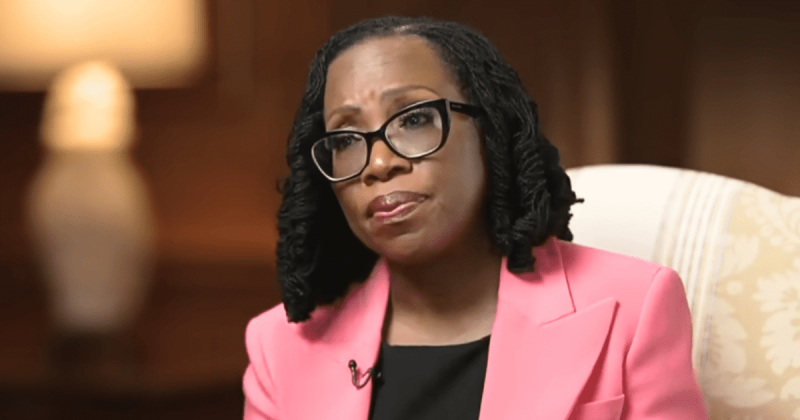A tense Supreme Court session on Wednesday saw Justice Ketanji Brown Jackson repeatedly challenge Louisiana’s Solicitor General during arguments in Louisiana v. Callais, a pivotal Voting Rights Act (VRA) case.
The decision could reshape how states draw districts and influence the 2026 midterm elections.
The case questions the constitutionality of race-based majority-minority districts under Section 2 of the 1965 VRA.
Louisiana’s congressional map includes six districts, and the lawsuit targets the creation of a second majority-black district, initially mandated by a federal court.
Plaintiffs, white voters who filed suit in 2024, argue the district’s formation improperly emphasized race, according to Trending Politics.
During the hearing, Jackson pressed Benjamin Aguiñaga, Louisiana’s Solicitor General, over whether Section 2 constitutes a “compelling state interest” for drawing districts along racial lines.
She frequently interrupted Aguiñaga as he tried to explain the legal framework, insisting that identifying a voting disparity differs from creating additional districts as a remedy.
Her approach was considered forceful and persistent throughout the session.
Jackson’s courtroom style continues a pattern that has drawn scrutiny.
Earlier this year, she clashed with Justices Neil Gorsuch and Amy Coney Barrett during arguments in a case involving administrative agency powers, where her interruptions were described as unusually confrontational.
She also drew attention for signing a book deal while serving on the Court, raising questions about judicial propriety and timing.
Critics argue her public statements on racial inequity and legal reform suggest political leanings that could influence her courtroom demeanor.
Appointed by former President Joe Biden in 2022, Jackson made history as the first black woman to serve on the Supreme Court.
A former federal public defender and U.S. Court of Appeals judge for the D.C. Circuit, she has often been viewed as a strong voice for liberal legal perspectives.
Since joining the bench, Jackson has been an active questioner during oral arguments, earning both praise for her sharp legal reasoning and criticism for her sometimes combative tone.
Legal experts note the Court’s ruling could have nationwide consequences.
Limiting the use of race in districting would weaken Section 2 protections, giving Republican-controlled states more flexibility in redrawing maps, while raising concerns about minority voting rights.
Conservative justices, including Clarence Thomas, have previously questioned Section 2’s constitutionality in redistricting cases.
The case highlights the tension between minority representation and race-neutral electoral processes.
Advocates for maintaining strong Section 2 protections warn that curtailing the law could dilute the voting power of black and Hispanic communities, while critics argue that race-based districting can prioritize demographics over geography or political fairness.
The ruling could set a precedent for other states considering redistricting plans, affecting legislative maps, partisan control and the balance of political power.
Analysts note that narrowing Section 2 protections may make historically Democratic districts more competitive, while giving Republican-led states greater latitude to reshape electoral boundaries.
As the Supreme Court deliberates, legal observers and political analysts are closely monitoring the case.
Its outcome is likely to reignite debates over the intersection of race, law and politics, with implications far beyond Louisiana, shaping the landscape for elections and redistricting nationwide.
LISTEN:

